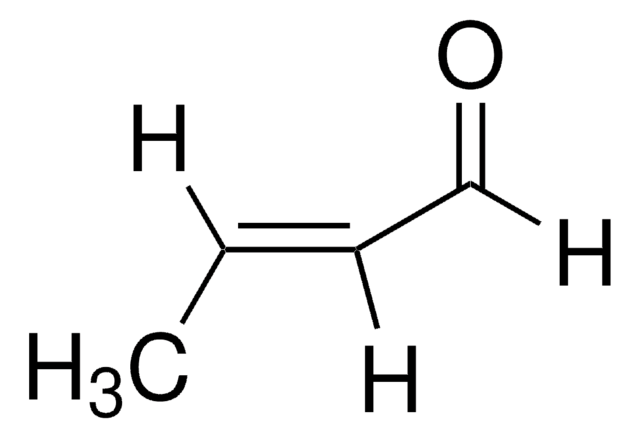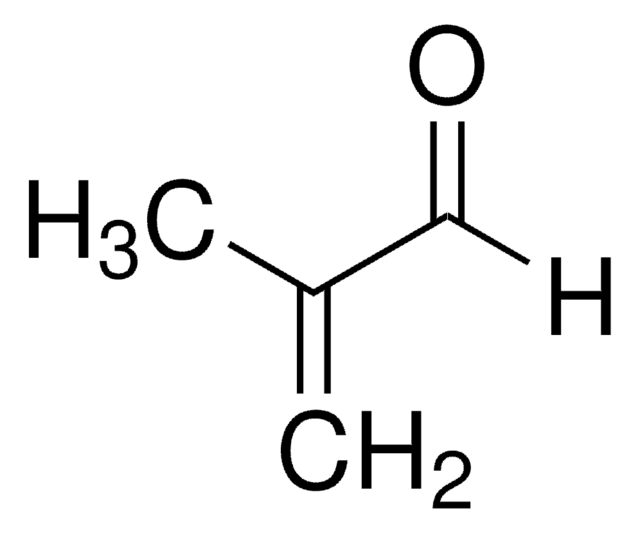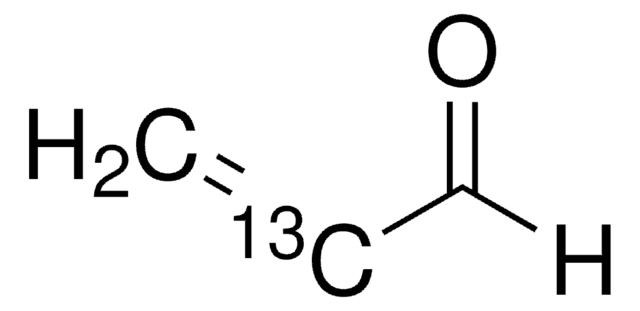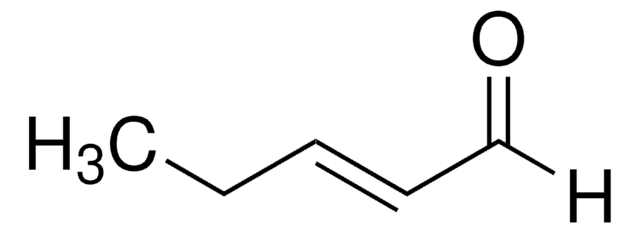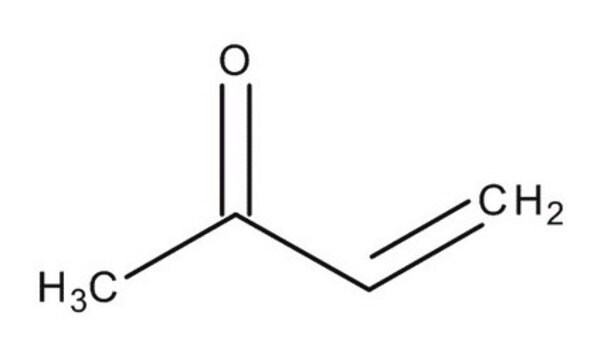27980
Crotonaldehyde, mixture of cis and trans
ratio of cis- and trans-isomers (~1:20), ≥99.5% (GC)
Synonym(s):
2-Butenal, mixture of cis and trans
About This Item
Recommended Products
Quality Level
Assay
≥99.5% (GC)
form
liquid
contains
~0.1% 2,6-di-tert-butyl-4-methylphenol as stabilizer
~1% H2O as stabilizer
refractive index
n20/D 1.437
bp
101-102 °C (lit.)
density
0.853 g/mL at 20 °C (lit.)
storage temp.
2-8°C
SMILES string
C\C=C\C=O
InChI
1S/C4H6O/c1-2-3-4-5/h2-4H,1H3/b3-2+
InChI key
MLUCVPSAIODCQM-NSCUHMNNSA-N
Looking for similar products? Visit Product Comparison Guide
General description
Application
- In the manufacturing of sorbic acid that are widely employed as food preservatives to avoid the food spoilage by microorganisms.
Signal Word
Danger
Hazard Statements
Precautionary Statements
Hazard Classifications
Acute Tox. 2 Inhalation - Acute Tox. 3 Dermal - Acute Tox. 3 Oral - Aquatic Acute 1 - Eye Dam. 1 - Flam. Liq. 2 - Muta. 2 - Skin Irrit. 2 - STOT RE 2 - STOT SE 3
Target Organs
Respiratory system
Storage Class Code
3 - Flammable liquids
WGK
WGK 3
Flash Point(F)
55.4 °F - closed cup
Flash Point(C)
13 °C - closed cup
Personal Protective Equipment
Certificates of Analysis (COA)
Search for Certificates of Analysis (COA) by entering the products Lot/Batch Number. Lot and Batch Numbers can be found on a product’s label following the words ‘Lot’ or ‘Batch’.
Already Own This Product?
Find documentation for the products that you have recently purchased in the Document Library.
Customers Also Viewed
Our team of scientists has experience in all areas of research including Life Science, Material Science, Chemical Synthesis, Chromatography, Analytical and many others.
Contact Technical Service